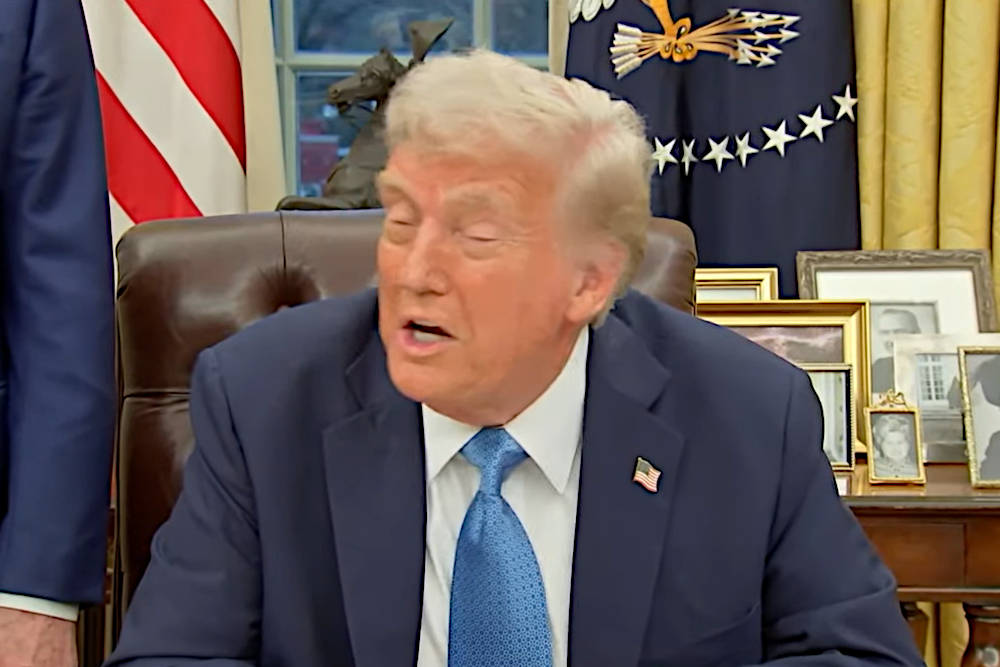
In a significant escalation of global trade tensions, President Donald Trump has announced the imposition of substantial tariffs on imports from Canada, Mexico, and China. These measures have prompted swift retaliatory actions from the affected nations, leading to widespread economic repercussions and concerns over a potential global trade war.
The Tariffs and Their Justifications
President Trump has implemented a 25% tariff on all imports from Canada and Mexico, with a specific 10% tariff on Canadian energy imports. Additionally, a 10% tariff has been imposed on goods from China. The administration justifies these tariffs as necessary to address trade imbalances, national security concerns, and to combat the import of illegal drugs, particularly fentanyl. Trump has cited a national emergency linked to drug trafficking and illegal immigration as the primary reasons for these actions.
Retaliatory Measures from Canada and Mexico
In response to the U.S. tariffs, Mexico has announced retaliatory tariffs ranging from 5% to 20% on various American goods. Canadian Prime Minister Justin Trudeau has vowed to impose 25% tariffs on U.S. goods worth $107 billion. These countermeasures are intended to protect their respective economies and signal their opposition to the U.S. tariffs.
Global Economic Impact
The announcement of these tariffs has led to significant declines in stock markets worldwide. Markets in London, Asia, and Australia have experienced notable downturns, reflecting investor concerns over escalating trade tensions and potential disruptions to global supply chains. Economists warn that these tariffs could lead to increased consumer prices, reduced GDP growth, higher unemployment, and inflation. The anticipation of tariffs has also led to "front-loading," where U.S. firms import goods in advance, causing shipping costs to surge and impacting global supply chains.
International Reactions
China and the European Union have expressed strong opposition to the U.S. tariffs. China has filed a lawsuit against the U.S. at the World Trade Organization, asserting that the tariffs violate international trade rules. A spokesperson for China's embassy in Washington stated, "No one will win a trade war or a tariff war," emphasizing the mutual benefits of China-U.S. economic and trade cooperation.
Domestic Implications
Within the United States, there is concern that these tariffs may lead to higher prices for consumers, particularly for goods such as groceries and cars. Economists argue that the costs of import tariffs often fall on domestic importers and may be passed on to consumers through higher prices. There is also skepticism about whether these tariffs will achieve the intended boost to American manufacturing or effectively address the issues of drug trafficking and illegal immigration.
Political Responses
Canadian Prime Minister Justin Trudeau has engaged in discussions with President Trump, emphasizing the importance of the U.S.-Canada relationship and expressing a willingness to work together constructively. However, Trudeau has also indicated that Canada is prepared to take retaliatory measures to protect its economic interests. Mexico's President Claudia Sheinbaum has warned that escalating trade retaliation would only hurt the economies of both nations and has called for bilateral, institutional mechanisms to address issues such as drug trafficking and illegal immigration.
Potential Long-Term Consequences
The imposition of these tariffs marks a significant shift in U.S. trade policy and has the potential to reshape global trade dynamics. The move away from free trade principles toward protectionism could lead to prolonged economic uncertainty and strained diplomatic relations. Companies worldwide are already adapting to mitigate the effects of the tariffs, with some considering relocating production facilities to the U.S. to avoid the tariffs, despite potential inefficiencies and increased costs.
Conclusion
President Trump's decision to impose substantial tariffs on imports from Canada, Mexico, and China has set off a chain reaction of retaliatory measures and economic repercussions. While the administration argues that these actions are necessary to protect American interests and address critical issues, the move has sparked widespread concern about the potential for a global trade war and its impact on the global economy. As the situation continues to evolve, businesses, consumers, and governments around the world are bracing for the potential long-term consequences of this significant shift in trade policy.
Was this article helpful to you? Please tell us what you liked or didn't like in the comments below.
About the Author: Alex Assoune
What We're Up Against
Multinational corporations overproducing cheap products in the poorest countries.
Huge factories with sweatshop-like conditions underpaying workers.
Media conglomerates promoting unethical, unsustainable products.
Bad actors encouraging overconsumption through oblivious behavior.
- - - -
Thankfully, we've got our supporters, including you.
Panaprium is funded by readers like you who want to join us in our mission to make the world entirely sustainable.
If you can, please support us on a monthly basis. It takes less than a minute to set up, and you will be making a big impact every single month. Thank you.































0 comments